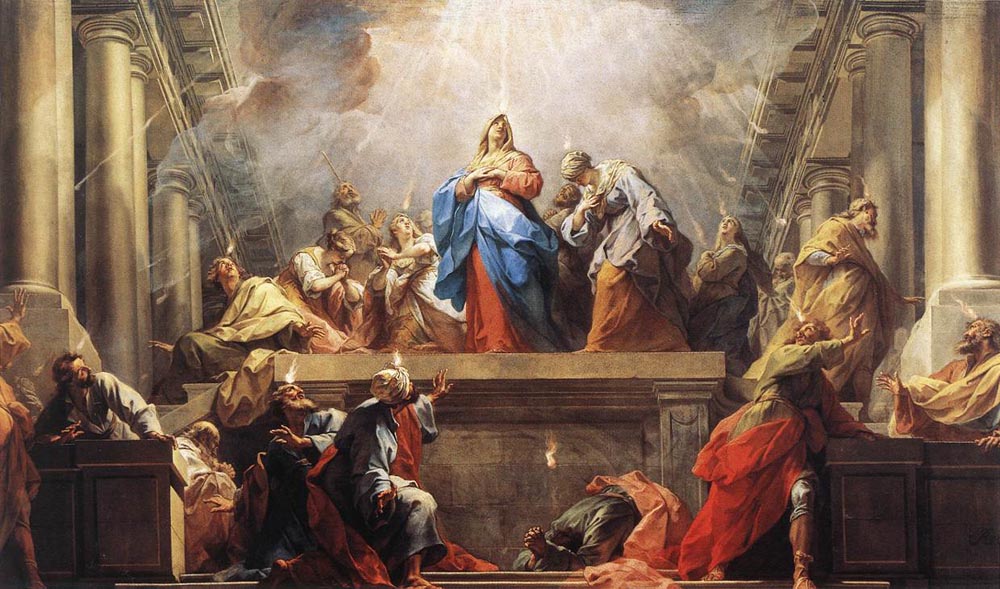
Look out for the dogs, look out for the evildoers, look out for those who mutilate the flesh. For we are the circumcision, who worship by the Spirit of God and glory in Christ Jesus and put no confidence in the flesh. Philippians 3:2-3
“And in Antioch the disciples were first called Christians.” Acts 11:26, circa 60-62 A.D.
“Rev. Charles F. Parham … is to send among the heathen, persons who have been blessed with the ‘gift of tongues’ – a gift which, he says, no others have ever had conferred upon them since apostolic times.” Topeka State Journal, 1901
“Pentecost Has Come” The Apostolic Faith Newsletter, Azusa Street Revival, September 1906
“God’s timely purpose for His prophets was officially birthed into the Church world on October 15, 1988, and was launched into what has become known as the Prophetic-Apostolic Movement.” Bill Hamon on the “Holy Spirit visitation” at the Sandestin Beach Resort Inn, Sandestin, FL 1988
“The New Apostolic Reformation is an extraordinary work of God at the close of the twentieth century that is, to a significant extent, changing the shape of Protestant Christianity around the world.” C. Peter Wagner, The New Apostolic Churches, 1998
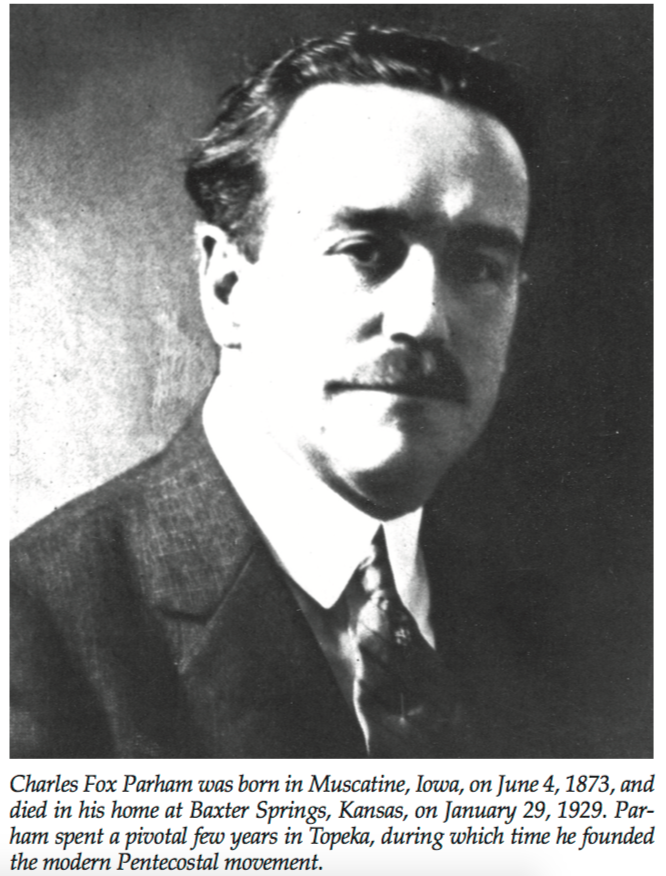
He insisted that those holding the title Doctor of Divinity, or “DD,” be referred to as “dumb dogs.”* He said that “seminaries” should be spelled and enunciated as “cemeteries.” It’s a documented fact that Charles Fox Parham, the “father of the modern Pentecostal movement,” had a well-voiced disdain for formally educated ministers. (Source)
(* – The prophet Isaiah also used the term “dumb dogs,” as translated in the KJV version of Isaiah 56:10. In the prophet’s case, he was referring to false and ignorant teachers whereas, in Parham’s case, the false teacher is using it against those who seek to handle rightly the Word of truth. (2 Timothy 2:15) Such irony ought not be missed.)
The irony, then, of Parham establishing the Bethel College and Bible School in Topeka, in October 1900, would seem obvious, if not for the eisegetical intent with which Bethel students would be guided. Parham focused his students on searching Scripture with a view to establishing textual evidence for the presence of the Holy Spirit in the early church, particularly exhibited in the gift of tongues. Parham approached Scripture – and taught his students to approach Scripture – with a preconceived conclusion that tongues and the baptism in the Holy Spirit were inseparable, that the gift of tongues was audible evidence of God’s presence and of one’s salvation.
Parham’s preconception can be seen well established two years earlier when he and his wife established the Bethel Healing House in Topeka. Parham, through his college and within his ministry, approached Scripture not in a Berean way to see if these things were so, but in a cut and paste manner. He already knew what he wanted Scripture to say.
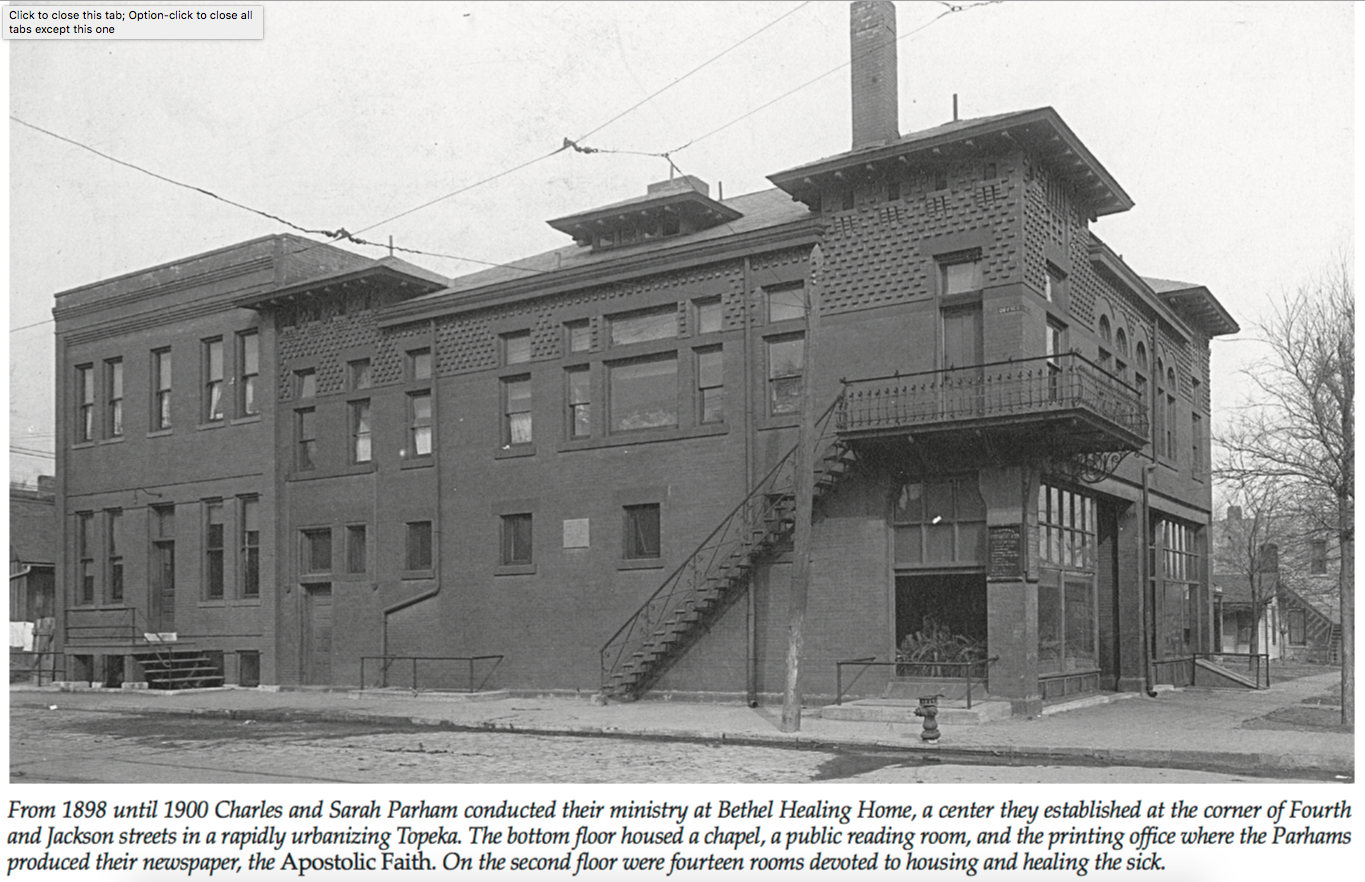
The healing ministry of Parham in Topeka came under fire, according to John MacArthur in Strange Fire, “When a young girl in Kansas died because her parents refused medical treatment and instead sought healing through Parham’s ministry…” The unfortunate event prompted the Pentecostal evangelist to take a hiatus to Texas.
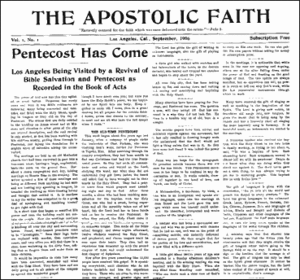 While in Texas Parham became acquainted with William J. Seymour. Becoming enamored with Parham’s teaching on the Holy Spirit gifts, Seymour ended up in Southern California where, as a Holiness pastor, he spread the Pentecostal fervor he’d learned from the Kansas healer. Seymour’s ministry on Azusa street would soon blossom into a full-blown Pentecostal revival by 1906.
While in Texas Parham became acquainted with William J. Seymour. Becoming enamored with Parham’s teaching on the Holy Spirit gifts, Seymour ended up in Southern California where, as a Holiness pastor, he spread the Pentecostal fervor he’d learned from the Kansas healer. Seymour’s ministry on Azusa street would soon blossom into a full-blown Pentecostal revival by 1906.
The twentieth century would see the Pentecostal Movement and the subsequent Charismatic Movement blossom from out of the Azusa Street revival. The continued emphasis of these highly experiential movements on Holy Spirit gifting has been subsumed under the recently monikered term- by the charismatic charlatan, C. Peter Wagner – the New Apostolic Reformation. (NAR)
The NAR, while affirming the supernatural apostolic gifts lauded in the Pentecostal and Charismatic Movements, has added a distinctly new element to the mix – it teaches that modern day apostles have been given to the modern church by God.
In 1900, according to the Status of Global Christianity report published by the International Bulletin of Mission Research, (A PDF of this report is provided below.) the global population of Pentecostals/Charismatics tallied 981,000 or about 0.0018% of the entire global Christian population. By mid-2017, according to the report’s projection, that percentage will be a staggering 0.282%. The sheer numerical head count of Pentecostal/Charismatics today is whopping, just under 670 million adherents. Fully one-fourth of all Christians fall under a “renewalist” theology.
(Renewalist, as implied, is an umbrella term for Pentecostals and charismatics, those who believe in the modern renewal of the first century apostolic gifts of tongues and healing, primarily. Pentecostals include the likes of the Assemblies of God, the Church of God in Christ, and the Universal Church of the Kingdom of God. Charismatics are adherents with much the same beliefs but are scattered among non-Pentecostal denominations, including Roman Catholicism and mainline Protestant denominations.)
The observable experiential focus of the Pentecostal-Charismatic-NAR movement is preeminently the gift of tongues. Parham, the education-despising father of the Pentecostal movement, believed that the tongues exhibited by his adherents were the same as they were in the New Testament – actual foreign languages. The presumption by Parham was that this supernatural gifting of language would aid his Pentecostal missionaries in evangelism. Quoting Parham, one newspaper wrote, “The students of Bethel College do not need to study in the old way to learn the languages. They have them conferred on them miraculously.” (Cited from Strange Fire.)
The legitimacy of this claim was soon enough proved erroneous. Charismatic authors Jack Hayford and David Moore acknowledged in their book, The Charismatic Century, “Sadly, the idea of xenoglossalalic tongues [i.e. foreign languages] would later prove an embarrassing failure as Pentecostal workers went off to mission fields with their gift of tongues and found their hearers did not understand them.”
Though they are known, even by charismatics, to be illegitimate imitations of their Day of Pentecost namesake, tongues continue to be exhibited by Pentecostals, Charismatics, and throughout the NAR movement. The Assembly of God denomination, which just hit a church plant milestone by adding 406 new churches in 2016 to bring their total church count to 16,023 in the United States, features an emphasis on the header of their Church Multiplication Network website: “We are dedicated to planting healthy, Spirit-empowered churches in every community in America.” (Emphasis added.) “Spirit-empowered” is most visibly reflected in the presence of tongues, despite their acknowledged variance from the New Testament practice. Actual language is unnecessary as ecstatic gibberish is evidence enough, albeit purely subjective evidence.

Yet tongues alone are not the only presumed manifestation of supernatural power within the movement. Todd M. Johnson, author of Counting Pentecostals Worldwide, provides a summation of the various gifts embraced by the experiential-intense movement.
“Pentecostal denominations hold the distinctive teachings that all Christians should seek a post-conversion religious experience called baptism in the Holy Spirit and that a Spirit-baptized believer may receive one or more of the supernatural gifts known in the early church: the ability to prophesy; to practice divine healing through prayer; to speak (glossolalia), interpret, or sing in tongues; to sing in the Spirit, dance in the Spirit, pray with upraised hands; to receive dreams, visions, words of wisdom, words of knowledge; to discern spirits; to perform miracles, power encounters, exorcisms (casting out demons), resuscitations, deliverances, and other signs and wonders.”

The impassioned pursuit of these supernatural gifts has led to the establishment of “schools” that presumably operate to aid the Holy Spirit in transferring His gifts to those eager to obtain them. Bill Johnson and Kris Vallotton operate, out of Bethel Redding, the School of Supernatural Ministry, “… where our students embrace their royal identity, learn the values of the Kingdom and walk in the authority and power of the King. It is a transformational experience,” their website claims. One graduate of Bethel’s school now operates a ministry called The Dead Raising Team, which presumably educates believers on how to perform this ultimate miracle.
 Surf over to “apostle” Randy Clark’s Global Awakening website and his Global School of Supernatural Ministry (GSSM) is highlighted. Located in Mechanicsburg, PA, the GSSM claims to “place an emphasis on impartation and equipping students for a life spent walking in the supernatural.” Clark’s is a three-year program that may be either completed on campus or online. The annual tuition is $3500. According to its website, “Topics taught at Global School include, but are not limited to: pastoral, prophetic, healing, identity, marketplace ministry, destiny, gifts of the Spirit, church planting, children’s ministry, prophetic art and hearing the voice of God.”
Surf over to “apostle” Randy Clark’s Global Awakening website and his Global School of Supernatural Ministry (GSSM) is highlighted. Located in Mechanicsburg, PA, the GSSM claims to “place an emphasis on impartation and equipping students for a life spent walking in the supernatural.” Clark’s is a three-year program that may be either completed on campus or online. The annual tuition is $3500. According to its website, “Topics taught at Global School include, but are not limited to: pastoral, prophetic, healing, identity, marketplace ministry, destiny, gifts of the Spirit, church planting, children’s ministry, prophetic art and hearing the voice of God.”
(The “apostle” Randy Clark also happens to hold a Master of Divinity from The Southern Baptist Theological Seminary, no doubt to the rolling-over-in-the-grave chagrin of Parham. Clark’s bio can also be found on the Fivefold Supernatural Ministry School website.)
Paul, the bonafide apostle, might find Clark’s educational offers to be distinctly aberrant from his own prayers and admonitions for the faithful. “ And so, from the day we heard, we have not ceased to pray for you, asking that you may be filled with the knowledge of his will in all spiritual wisdom and understanding, so as to walk in a manner worthy of the Lord, fully pleasing to him: bearing fruit in every good work and increasing in the knowledge of God …” (Colossians 1:9-10) Paul’s interest in “impartation,” for “destiny,” for believers to “walk in the supernatural” are absent, though his desire for believers’ growth in spiritual wisdom, understanding and increasing knowledge of God is clear. Those more mundane, but authentically apostolic, entreaties are disregarded by Clark and his charismatic ilk who prefer to emphasize the experientially supernatural.
From Todd Johnson’s definition of Pentecostalism, to “dance in the Spirit” may seem an odd spiritual pursuit. But you’ll find on “apostle” Clark’s website a link for their Dance Revelation school. “DR is a faith built organization,” says it’s “About Us” section. “Dance revelation encourages its dancers to dance with their hearts, souls, and minds – to imagine the impossible, then dance it.” David may have danced to the Lord, but his act of worship was, of course, spontaneous, not the result of a spiritualized curriculum out of a school of supernatural ministry.
It is the phenomenal growth of charismatic behavior of all sorts that is most concerning for the modern church. As noted early, the current global population of adherents claimed by the movement comes in at just under 670 million souls. By comparison, the global population of those who are simply defined as “evangelical” is far less at 341 million. The nearly two-to-one ratio of charismatics to non-charismatic evangelicals is projected to maintain itself, reaching 795 million charismatics to 400 million evangelicals by 2025. According to World Christian Database, by 2050, it’s estimated that 1.1 billion will fall into the charismatic camp.

Evangelical churches are increasingly being displaced by churches driven by a “Spirit-empowered” or “Spirit-filled” experiential theology. A March 2016 article in Religion News Service highlighted the demise of Christianity in England. “In the past six years, 168 Church of England churches have closed, along with 500 Methodist, and 100 Roman Catholic churches.” But the vacuum created by these closures was quickly filled. “But for every Anglican church that has closed over the past six years, more than three Pentecostal or charismatic churches have taken their place.” (Source)
While the usurpation of more mainline churches by those with charismatic theology seems to be an ongoing certainty, influential evangelical leaders are not speaking out against the movement. They are increasingly eyeing its growth with almost covetous desire, lauding it for its visible excitements, and embracing many of its faulty teachings. We highlighted in SBC Endorses NAR-Charismatic False Teaching how the Southern Baptist Convention has adopted errant spiritual warfare teaching from the charismatic/NAR movement in promoting its own awakening-seeking agenda.
(For more on how the SBC seems to be transitioning into “Southern Baptist Charismatics,” see THIS article on the International Mission Board’s revised policy of accepting candidates who utilize a “private prayer language,” or THIS article on how the IMB’s David Platt seems unwilling to disaffirm the miraculous tale of a modern resurrection.)
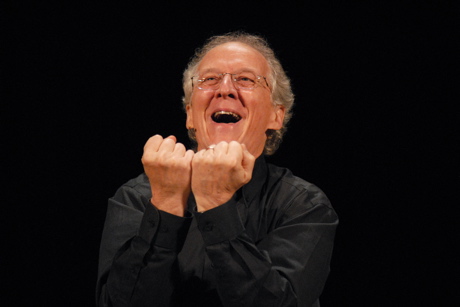
The highly influential continuationist* John Piper responded favorably in June 2016 to the question, “What is the role of Pentecostalism in the world?” Piper said, “It’s huge. When you think of the awakening of Pentecostalism and evangelicalism: lovers of the gospel and lovers of being born again, lovers of Scripture, lovers of the Bible, lovers of evangelism and world missions.”
(* – Piper discusses the gift of tongues in the Q&A entitled Are Tongues & Prophecy Alive Today? Note that he doesn’t believe he has ever authentically engaged in tongues, but he does pray for the gift.)
Piper, dismissing the inherent, and original-with-founder Parham, risks of the eisegetical use of Scripture to validate charismatic experiences, does offer a warning about the movement, though it’s not a warning about the excesses of its practice. He says, “… mingled with Pentecostalism in many places is a prosperity gospel, a prosperity preaching…” Piper is, of course, correct in this warning. The public face of the charismatic movement is explicitly the proclamation of a prosperity gospel. One need only to turn on “Christian” television to see charismatic hucksters promising bounteous returns on seed-faith donations from their Biblically-illiterate viewers.
(Piper’s comments on Pentecostalism may be heard HERE. It also happens to be, FYI, the same broadcast in which he reasserts his affinity for Rick Warren.)

Where Piper gives a modest warning with an otherwise glowing endorsement of the movement, other evangelical influencers are more direct in their admiration of the movement, aiming to learn how its growth may be emulated in their own dying denominations. Former Southern Baptist leader, Ed Stetzer, writing in Christianity Today about Why Do These Pentecostals Keep Growing?, says “One of the dangers today is ‘bland evangelicalism.’ Many evangelical churches are in a state of plateau or decline. Some groups are trying to downplay their distinctives to be more acceptable. Who wants to duplicate that? Nobody.”
Stetzer’s point is that a significant reason for Pentecostalism’s growth, and a feature that declining denominations ought to consider, is that “most simply are not as excited about what they believe – and don’t think it needs to be propagated as much – as the Pentecostals.” Yet, manifestations of supernatural, ecstatic behavior are not mentioned in Scripture as fruits of the Spirit. The fact that millions upon millions are attracted to excitements is not a Scripturally-valid inducement for others to emulate. Indeed, it’s a mechanism absent from the pages of Holy Scripture. “Bad company ruins good morals.” (1 Corinthians 15:33)
A much more astute response to “bland evangelicalism” might be recognizing that the correction of such a dismal analysis is neither the embrace of techniques (and certainly not the ecstatic practices) of charismatic church growth mechanisms nor the continued bigger-better-more entertainment offerings of typical seeker-sensitive churches. For nearly two millennia, Christ has managed to build His church (Matthew 16:18) without Hollywood theatrics and emotional frenzy. He’s done it as a result of Paul’s instruction to Timothy being obediently followed, “Preach the word.” (2 Timothy 4:2)
It simply must be emphasized that the charismatic movement was birthed by a Pentecostal preacher who dismissed the importance of authentic, scholastic, Biblical study, instead preferring an intensely subjective approach to Scripture with an intentionally eisegetic approach in order to ferret out “truth” to substantiate his supernatural predispositions. But, as has been said, you can make Scripture say whatever you want Scripture to say.
As it stands today, in early 2017, some 670 million souls believe the results of Parham’s anti-exegetical, pro-experiential pursuits. As for the many presumed charismatic scholars who use Scripture to validate charismania, their interpretations often smack of the same eisegesis that Parham intentionally invoked for his students. In cases where more prudent defensive scholarship seems present, the understanding of how God has acted in history – as He’s shown us in His historical Word – seems obscure and avoidable to them. It’s the entirety of Scripture that is the proof-text that validates cessationism. (A forthcoming article will feature a look at a resource that refutes fundamental errors of charismania.)
When considering the ever-increasing presence of charismania, believers must be intentional and prudently Berean. A cautious study of Scripture’s consistent theme regarding the phenomena intrinsic to the charismatic movement must be the primary guide, not, as Parham used Scripture, an ancillary and eisegetically derived confirmation of them.But so too must the believer engage the mind to apply Scripturally-informed common sense to ascertaining the legitimacy of these charismatic phenomena.
Though the movement often commends itself as the modern extension of the day of Pentecost, there is no Divine source for it. What is lacking in the current movement is – first, foremost, and most notably – an evident, clear, unarguable work of God in recent history to precipitate it. This movement is unlike a revival, born of prayer and preaching of the Word. This movement claims not only the renewal of signs and wonders in the modern church but also the presence in the church of modern-day apostles and revelatory prophets.
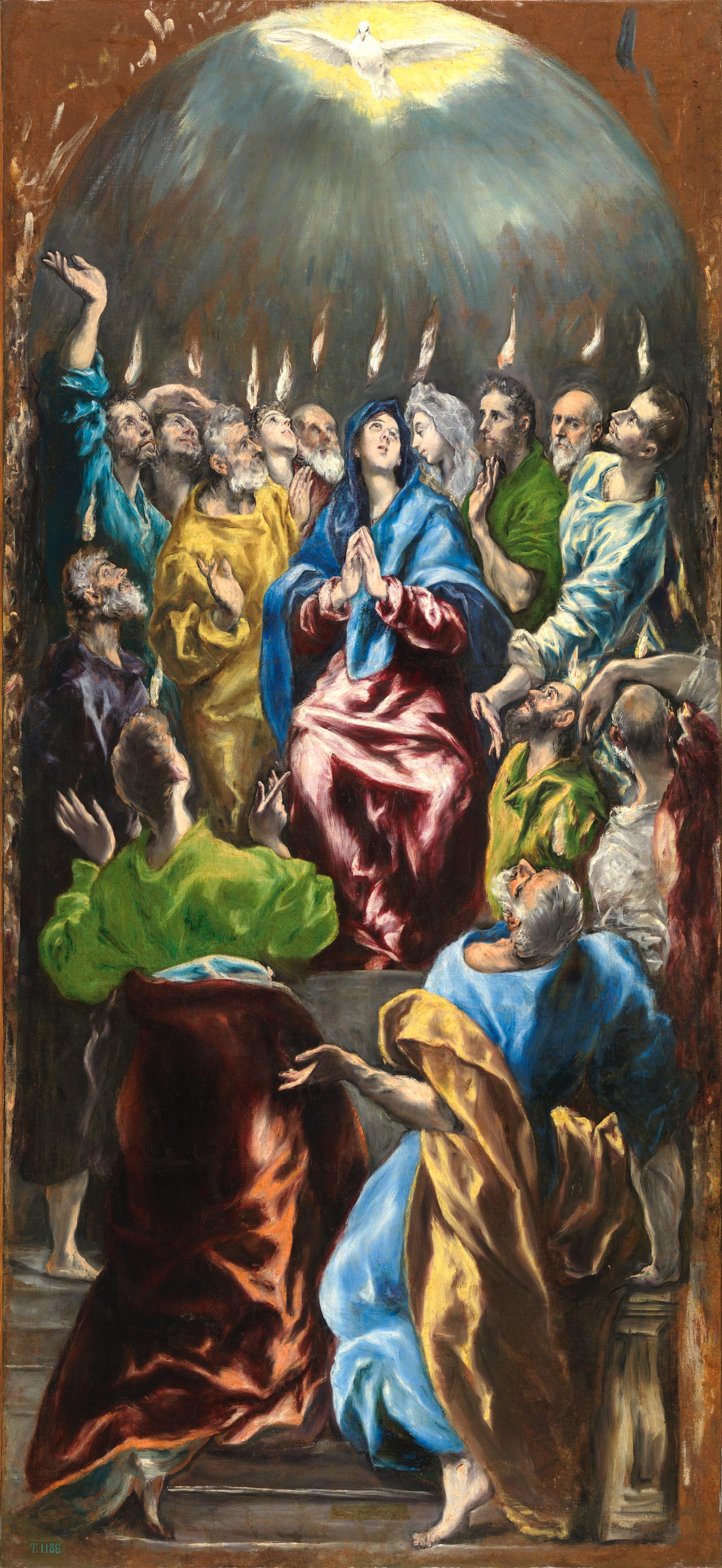
Pentecost was a Christ-promised, one-time event that followed God’s supreme insertion of Himself into human history in the form of His Incarnate Son. The first-century experience of Pentecost had a divine impetus that the modern movement lacks. God has not acted to foment the movement and the mere presence of the crowd dynamics it possesses is not self-validating. That millions may be doing a thing does not mean that thing is of God. He acted to initiate Pentecost; He has done nothing to incite the charismatic movement.
“Rev. Charles F. Parham … is to send among the heathen, persons who have been blessed with the ‘gift of tongues’ – a gift which, he says, no others have ever had conferred upon them since apostolic times.” Topeka State Journal, 1901
Since before the end of the first century, the Holy Spirit gifted phenomena came to a close. Even Parham, the founder of the modern charismatic movement, acknowledged as much in 1901. Yet in 1906, the claim “Pentecost has come” was declared, speaking of the Azusa Street Revival. Why? Because the frenzied emotionalism of ecstatic utterances frothed forth from the meeting was seen as evidence. By 1988, a “father of prophecy,” Bill Hamon, would announce the sudden reappearance of prophets and apostles into the church. A decade later, the well-known charismatic “apostle” C. Peter Wagner would validate the charlatanry under the moniker New Apostolic Reformation.
Yet, for some 1900 years, the history of the orthodox Christian church has been void of the supernatural signs and wonders. As John MacArthur writes in his commentary on First Corinthians, “The gift of tongues is nowhere alluded to or found in any of the writings of the church Fathers.” With regards to just tongues, the writings of Clement of Rome (writing, by the way, to Corinth some 40 years after Paul’s first epistle to them), those of the second century’s Justin Martyr and those from the third century’s Origen make no mention of tongues. Chrysostom, in the fourth century, wrote that tongues and miraculous gifts had ceased. Augustine also confirmed their ending:
“In the earliest times the Holy Spirit fell on them that believed and they spoke in tongues. These were signs adapted to that time, for there behooved to be that betokening of the Holy Spirit. That thing was done for betokening and it passed away.”
Arising from the charismatic teaching of a Pentecostal preacher, who maintained a disdain for seminary training and academic Christian scholarship, the modern movement lacks a clear, compelling, Divine impetus. God has not, in some clear-cut, undeniable manner, re-inserted Himself into human history at the turn of the 19th to the 20th century. Christ has not returned to precipitate a “second” Pentecost experience for His church, nor did He suggest one in His first-century inspired Word.
The charismatic movement reverses the divinely established order of Son and Holy Spirit. For all it lauds Holy Spirit power, the charismatic movement fails to apprehend the clear behavior of the Holy Spirit when He came “with fire” at the Christ-promised Pentecost – the Holy Spirit never pointed believers to Himself. Neither does He do so now. Rather, He always points towards Christ in His work of convicting the world “concerning sin and righteousness and judgment.”
Nevertheless, I tell you the truth: it is to your advantage that I go away, for if I do not go away, the Helper will not come to you. But if I go, I will send him to you. And when he comes, he will convict the world concerning sin and righteousness and judgment: concerning sin, because they do not believe in me; concerning righteousness, because I go to the Father, and you will see me no longer; concerning judgment, because the ruler of this world is judged. John 16:7-11
For the charismatic movement, though, the Gospel of Jesus, which is rightly the “power of God for salvation,” (Romans 1:16) is approached merely as the Gospel of Jesus which is the power of God for obtaining supernatural spiritual gifts. Christ Himself is less the consistent focus and more the pragmatic spiritual mechanism for receiving the miraculous gifts of the Spirit. The Assembly of God emphasis, notably, is on “Spirit-empowered” churches, not on Christ-exalting ones. However, pursuing the former does not translate into automatically doing the latter. To cite MacArthur again: “Show me a person obsessed with the Holy Spirit and I’ll show you a person not filled with the Holy Spirit.”
The rampant prosperity Gospel in the charismatic movement is evidence of a false messiah (Matthew 24:24) of an “other gospel.” (Galatians 1:8) Where Jesus gave the Spirit to continue God’s plan of redemption and to seal His followers in the new covenant, the charismatic movement pursues the Holy Spirit by way of Christ for the experiential benefits of His supernatural gifts. The Spirit doesn’t point to Jesus; Jesus points to the Spirit seems to be the illogical but persistent presumption and the most manifest exhibition of the movement.
“When the Spirit of God is poured out for the purposes of producing and promoting divine love, He is poured out in a more excellent way than when He is manifested in miraculous gifts.” Jonathon Edwards
Charismatics seem far less interested in actually knowing Jesus (John 17:3) than they are in getting the Spirit, a pursuit unparalleled in the Christian history of the post-first-century early church and not highlighted or emphasized by authentic, inspired, first-century apostles in their New Testament writings. Paul’s admonition to the Corinthian church to “earnestly pursue gifts” was contextually given to a church sorely abusing those already existing gifts. The letter was contextually specific, prompted by their disobedient, illicit behavior, and provided within it an exhortation to an even greater pursuit for which the church of Christ should be noted – the pursuit of love.
A logical inference from Christ’s warning regarding the narrow path and the wide path must be entertained with regards to charismania. From its inception, though it slathers its proclamations in Scripture, the charismatic movement clearly emphasizes subjective spiritual experience over the absolute certainty of God’s Word. Where Christ prayed for believers’ sanctification, He included the preeminence of the Word. “Sanctify them in the truth; your word is truth.” (John 17:17) Does it seem likely, then, that God would sanction as an authentic “narrow path” endeavor a movement that is borne out of “wrongly” handling that Word? (2 Timothy 2:15)
Enter by the narrow gate. For the gate is wide and the way is easy that leads to destruction, and those who enter by it are many. For the gate is narrow and the way is hard that leads to life, and those who find it are few. Beware of false prophets, who come to you in sheep’s clothing but inwardly are ravenous wolves. You will recognize them by their fruits. Are grapes gathered from thornbushes, or figs from thistles? So, every healthy tree bears good fruit, but the diseased tree bears bad fruit. A healthy tree cannot bear bad fruit, nor can a diseased tree bear good fruit. Every tree that does not bear good fruit is cut down and thrown into the fire. Thus you will recognize them by their fruits. Matthew 7:13-20
It’s worth noting that Christ, immediately following his exhortation to “enter by the narrow gate,” gave a clear warning against false teachers. Where will they be found? On the wide path. How are they to be recognized? By their fruits. “Gifts” are not “fruits.” But it is “gifts” – not “fruits” – that are the intentional pursuit of the charismatic movement and the visible evidence of it.
That enemy of our Lord, the father of lies, (John 8:44) who disguises himself as an angel of light (2 Corinthians 11:14) and seeks to kill, steal, and destroy, (John 10:10) is a maestro of orchestrating pseudo-religion. He cares nothing that people believe in God or act out their belief in God, so long as it’s the wrong God and the wrong behavior. But Satan is unable to do what the Holy Spirit does – generate authentic spiritual fruit. Genuine fruit only comes in the life of a genuine believer and is evidence of the Spirit’s sanctifying work. While he cannot produce genuine fruit, Satan can – and does – mimic gifts, a reality that must be carefully discerned. As John Calvin stated, “We must remember that Satan has his miracles, too.”
Given its inception from a progenitor known for disdaining Scriptural scholarship; considering its recent, sudden appearance from 1900 years of absence – moving from the fringes of church life to a position of predominance; recognizing its primary pursuit of the Spirit rather than of Christ; and realizing its emphasis on gifts rather than fruits, the charismatic movement exhibits marks that believers must carefully consider.
The charismatic movement is a clear and present, wide-path danger to the church. For Parham – and for many adherents in the charismatic movement – the “dumb dogs” seem to be those who pursue what Paul commended to the Philippians, “And it is my prayer that your love may abound more and more, with knowledge and all discernment, so that you may approve what is excellent, and so be pure and blameless for the day of Christ, filled with the fruit of righteousness that comes through Jesus Christ, to the glory and praise of God.” (Philippians 1:9-11). But for those in Paul’s camp, the “dumb dogs” are those who, called “evildoers” in Philippians 3:2, emphasize fleshly attributes and draw attention away from Christ.
When it comes to the charismatic movement, Spurgeon’s words seems to ring with clarity as a sorely needed tocsin:
“Be assured, there is nothing new in theology except that which is false.”
(In an upcoming article, we will consider a helpful exegetical resource that responsibly and biblically refutes the erroneous fundamental presumptions of the charismatic movement: the gift of tongues and the gift of prophecy. We encourage you to please, be Berean and always “abide in my word.” John 8:31)
Click the following for the Status of Global Christianity 2017 Report:
StatusofGlobalChristianity2017.
Bill Hamon, cited in the opening, is regarded as a “Father of the Prophetic,” and is author of Seventy Reasons For Speaking In Tongues, currently being hawked by the charismatic website The Elijah List.
This article referenced and/or cited Charismatic Chaos and Strange Fire, both written by John MacArthur. They are highly recommended resources for a study on the errors and abuses of the charismatic movement.
[Contributed by Bud Ahlheim]










